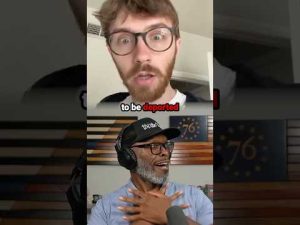In a surprising twist, Brandon Johnson, the mayor of Chicago, has rolled out a new initiative dubbed the “Protecting Chicago” program. This grand plan is aimed at ensuring that every Chicagoan knows their rights, while also preparing families to deal with any federal actions that might come their way. Johnson’s announcement comes amid ongoing debates about law enforcement and public safety in the city—debates that have sparked fiery discussions among politicians and citizens alike.
Critics of the initiative are quick to point out that it may be more about showmanship than effective governance. Some commentators are suggesting that this is a classic case of politics at play, where Johnson is trying to position himself as a protector of the community against perceived federal overreach. Meanwhile, those on the opposing side argue that federal help is desperately needed in a city that has become notorious for high crime rates, including being labeled as the murder capital of the United States for over 13 consecutive years.
The heart of the matter rests on one crucial question: Is this initiative genuinely meant to help Chicagoans, or is it merely a political stunt? Observers have noted a distinct pattern where Democratic leaders attempt to steer the narrative away from accountability and towards blaming former President Trump for their own struggles. Many people in Chicago feel anxious about their safety, and they are growing increasingly disenchanted with the current administration’s handling of crime.
Adding fuel to the fire, other political figures, including President Trump, have applauded rival leaders like D.C. Mayor Muriel Bowser for their collaborative efforts to reduce crime. They argue that the partnership between local and federal authorities has led to a significant decrease in violent crime in Washington, D.C. This stark contrast raises an eyebrow: why wouldn’t Chicago’s leadership want to pursue similar partnerships instead of issuing orders that tell local officers to steer clear of their federal counterparts?
In a city grappling with a troubling crime rate, Chicagoans are seeking solutions, not political games. As the narrative unfolds, it becomes ever clearer that the rising discontent among the populace may pose a serious threat to the Democratic leadership. With safety concerns looming large in every neighborhood, residents want to see tangible improvements rather than abstract promises from their elected officials.
As community members look on, it remains to be seen whether Johnson’s initiative will yield any meaningful change or if it will fizzle out like a firework that fails to light up the night sky. One thing is certain: in a city where the stakes are high, the call for real, actionable change is stronger than ever, and voters are ready to hold their leaders accountable.







